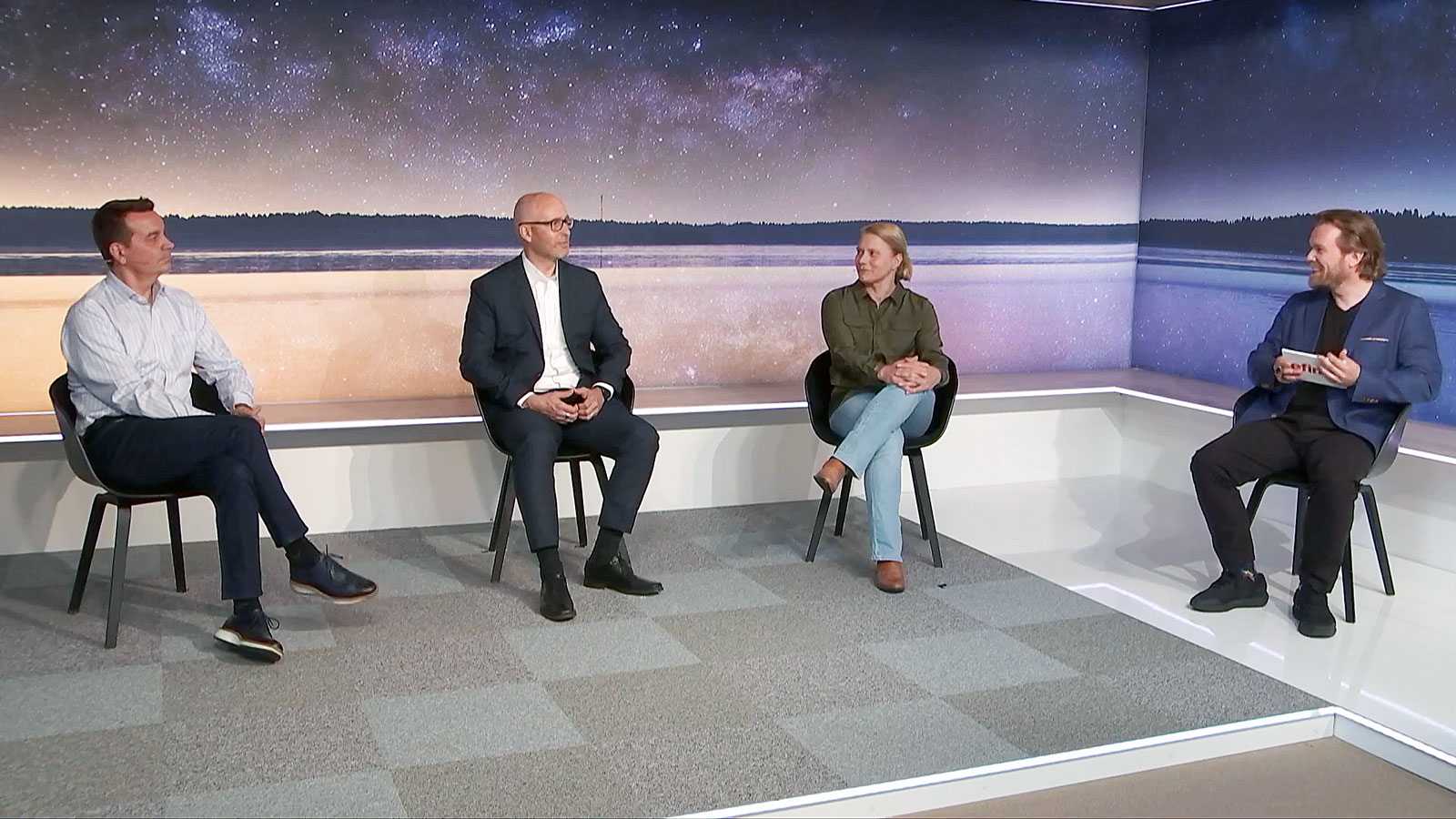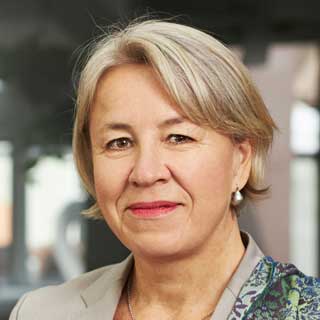
“ERP projects might make some people want to run away and hide. However, I want to say that an ERP project can be successful too. It is possible. This morning has been full of great advices on how to do it successfully”, Paula Aaltonen from Midagon concluded her last speech at Efima’s ERP Cloud Morning.
As Aaltonen said, Efima's remote event, ERP Cloud Morning, held in May was full of talk about ERP cloud migration and conditions for its success. Expert speeches on the topic were heard from Efima’s Kai Lyytinen, Microsoft's Karl O'Leary and Midagon's Paula Aaltonen. The expert speeches were complemented by real life experiences from Efima's two customers, YIT's Esa Nykänen and Inlook Group's Antti Metsola. The event was hosted by non-fiction writer and AI expert Antti Merilehto.
Moving ERP to the cloud is a necessary future step for many organizations
Many software programs have already been moved to the cloud, and now also moving ERP systems to the cloud is in full swing. The transition to an online platform brings a wide range of opportunities for ERP, from agile development to scalability and data updating in real time. However, moving local, highly customized ERP systems to the cloud is not an agile or painless process – there are weighty decisions to be made regarding the choice of the cloud solution and its supplier, as well as plenty of project and people management. However, according to all of the speakers the award is worth the effort.
According to a poll conducted during the event, almost half of the participants’ organizations had already moved their main ERP or financial management solution to the cloud, but at the same time almost half of the organizations are still facing this necessary step in the future. According to Efima’s Kai Lyytinen, the result of the poll represents the situation in Finland accordingly: there is still work to be done to move all ERP systems to the cloud and hearing best practices from those who have already done it is greatly appreciated.
The future needs of the business should guide cloud migration
"An ERP project is not an IT project: it is always done for the sake of the business", Paula Aaltonen from Midagon argued in her speech. Although discussions related to cloud migration are often directed towards different technologies, at the ERP Cloud Morning the focus point of cloud migration was named to be supporting business goals – not technologies.
Whether it is about choosing a new cloud solution or its supplier, the speakers agreed that the decisions should be made based on the future needs of the business. “As Paula said, business and processes are the main thing, and technology comes second. We did not plan our cloud migration strategy based on a technology, but based on which technology meets our needs and what kind of partner is capable and competent to put things into practice”, YIT's Esa Nykänen explains and talks about the ongoing project of moving YIT's financial management processes from two on-premises SAP systems to a Dynamics 365 cloud solution with Efima as their partner. The modular cloud solution chosen by YIT can also be extended to other business processes, which YIT saw as an important advantage when choosing a cloud solution that would also meet their future needs.
Efima’s Kai Lyytinen also emphasized the connection of the cloud migration to the strategic goals of the company and emphasized that the choice regarding the cloud solution and its supplier should be influenced by the company’s market, products, customers, and suppliers.
Cloud transition means change, and leading the change is a prerequisite for a successful cloud migration
Local ERP systems have traditionally been strongly tailored to fit customer needs. With cloud ERP’s however, the intent is often to standardize the solution as much as possible and minimize customizations.
This was also Efima’s customer’s, Inlook Group’s, strategy, when they started looking for a cloud ERP to replace their local and highly customized AX 2012 ERP system. "Unlike local systems, cloud ERP’s are updated several times a year, and if you have to go through all the customizations every time it’s updated, it becomes very expensive and challenging", Inlook Group's Antti Metsola explains.
In order to not to make ERP testing during each update too complicated and time consuming, the speakers at the ERP Cloud Morning recommended to minimize customizations. In practice, it means that where before the ERP systems were tailored to suit business processes, now business processes and practices need to be tailored to fit the cloud solution. This has a significant impact on people’s job descriptions, roles and tasks. And as Paula Aaltonen described, cloud migration requires organizations to be ready for change and to be willing to change.
In Inlook Group's ERP modernization change and change management also became key themes. “A lot of people want to do an IT project, as long as nothing changes in practice. But now we must – and we want to – change. That is the state of mind of our company. We want to develop our business, and the implementation of the cloud solution we have chosen creates new opportunities to develop our business and succeed in the future. In order to make this possible, practical matters must also change”, Metsola describes the situation at Inlook Group, where the change required by the cloud migration was seen as an opportunity to shake up old ways of doing and renew processes.
Collected advice from Efima’s ERP Cloud Morning
ERP Cloud Morning made it clear that moving ERP to the cloud is not just an IT project, but a project involving a wide range of people – the entire organization and its practices – that requires fundamental project and change management in addition to choosing the right technology and partner.
We made a list of the key takeaways from ERP Cloud Morning on how to succeed on this journey:
- Before starting the project, make sure that you understand where you are now and where you are going. Make all the choices related to cloud migration based on your business’ future needs – without forgetting the current state and healthy realism.
- Choose a technology and partner that help your company to meet your future business goals.
- Plan your ERP project thoroughly: prioritize and make a realistic schedule.
- Start advancing the project step by step and make sure you have enough work force allocated for the project: a turnkey ERP project does not exist.
- Remember that a cloud migration will modernize your business processes only if you are willing to change them. And because a successful cloud migration requires change – lead the change and never underestimate the power on communication.
- Involve a wide range of people in the project and harness your organization’s change ambassadors to spread the word: cloud migration affects everything and affects everyone, and it’s not just a matter of the business executives.
Want to hear more concrete tips and practical experiences on moving ERP to the cloud? Watch the full recording of ERP Cloud Morning from the video down below! Note that the event is spoken in Finnish.


